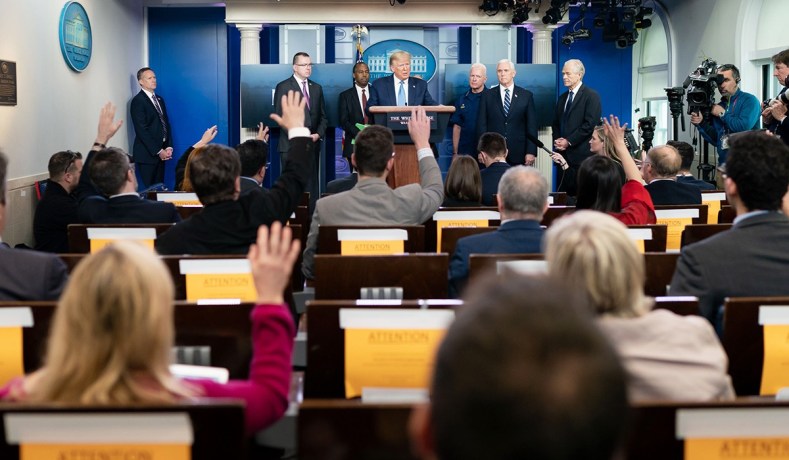Following four long arduous years of excessive politicization, the country’s mainstream news outlets continue fanning the flames of the national division with overtly partisan and preferential reporting. While implicit biases are almost certainly inseparable from fields of mass communication such as journalism, the necessary lines differentiating between implicit bias or preferential overtones from propagandistic reporting may have never seemed so blurred. As a result, Americans are now acknowledging the excessive political leanings as well as showing historic rates of distrust in the nation’s press and government.
Axios recently published an article highlighting the key findings from analytical and polling data, provided by the reputable public relations firm, Edelman. The firm’s annually published 2021 Trust Barometer sheds light on some troubling and hopefully eye-opening nation-wide phenomena. According to Axios, the report found “56% of Americans agree with the following statement that ‘journalists and reporters are purposely trying to mislead people by saying things they know are false or gross exaggerations.’”
Additionally, the report found that “58% think that ‘most news organizations are more concerned with supporting an ideology or political position than with informing the public.’” The stark contrast in Chris Matthews’ commentary during MSNBC’s live coverage of Barack Obama’s inauguration in 2009 and Donald Trump’s in 2019 is less than subtle. After Obama’s address, Matthews admitted to having “felt this thrill going up my leg” after he started speaking. Following Trump’s address in 2017, Matthews stated, “when he said today, ‘America first,’ it was not just racial, I should say, Hitlerian.”
During President Joe Biden’s recent inauguration on Jan. 20, cable news networks broadcasted their new sycophantic support for what MSNBC’s Joy Reid called, “an incredible inauguration.” Also, on MSNBC Rachel Maddow claimed on-air that she had polished off an entire box of Kleenexes during the proceedings.
Even CNN’s Jake Tapper, whom Politico has called “a normally sober-minded journalist,” could not help but produce Eddie Haskell levels of flattery for Biden. The newly inaugurated president and vice president visited the Tomb of the Unknowns, when Tapper stated, “I cannot imagine that President Biden was not thinking of his favorite soldier, Beau Biden, his son, who died of cancer in the Army Reserve, and for whom he mourns greatly.”
Edelman repolled Americans following the 2020 election and according to Axios, “the figures had deteriorated even further, with 57% of Democrats trusting the media and only 18% of Republicans.”
Also mentioned in the report, Edelman’s data suggests Americans’ trust in social media reached “an all-time low of 27%.” This is easily comprehendible and equally justifiable. Social media has forever altered the established dynamics of human communication.
Moreover, people’s constant connectivity to the world and regular updates on all its ongoings have created a hyper-political culture within the United States. The most notable positive result of this connectivity is increased civic engagement across the board, but especially during national elections.
However, the consequence of social media’s failure to clearly define itself as either a platform or a publication has been demonstrated through the spread of nauseating, parasitic conspiracy theories, which played an undeniable role in the storming of the capitol on Jan. 6. Social media outlets like Twitter and Facebook have let these conspiratorial hiveminds develop themselves, and quite frankly, the fault lies on both social and corporate media.
Sweeping efforts of censorship from Twitter, Facebook and others may have only exacerbated matters. Suppressing the New York Post’s story on Hunter Biden’s laptop hard drive in October 2020 was highly suspicious and in many ways unethical. The New York Post is not a cesspool of QANON fanatics or Ethno-nationalists, but is rather a widely read and credibly regarded publication. Yet Twitter reasoned that the article revealed confidential information on an individual but failed to act when the New York Times published a leaked copy of Trump’s tax returns.
These massively influential tech companies’ insistence that all those active on their platform must conform to Silicon Valley’s definition of acceptable speech is problematic. There are some major conflicts of interest when it comes to the political leanings of senior management at these tech companies. Alphabet group, Google’s parent company, donated a total of “$21 million to presidential candidates since 2019,” and Biden was the top recipient according to Observer. The article says that “nearly 80 percent of the funds went to Democrats, while just 7 percent went to Republicans.”
Over the years, political promotion and selective reporting have steadily bled through newspaper editorial sections and O’Reilly-esque news personalities. Today, media outlets continue adding to an unsightly stain on what was once a more objective and less partisan press.














Be First to Comment